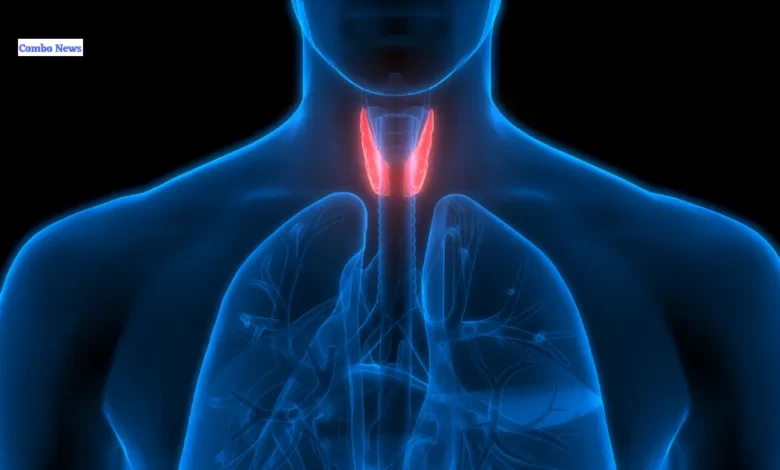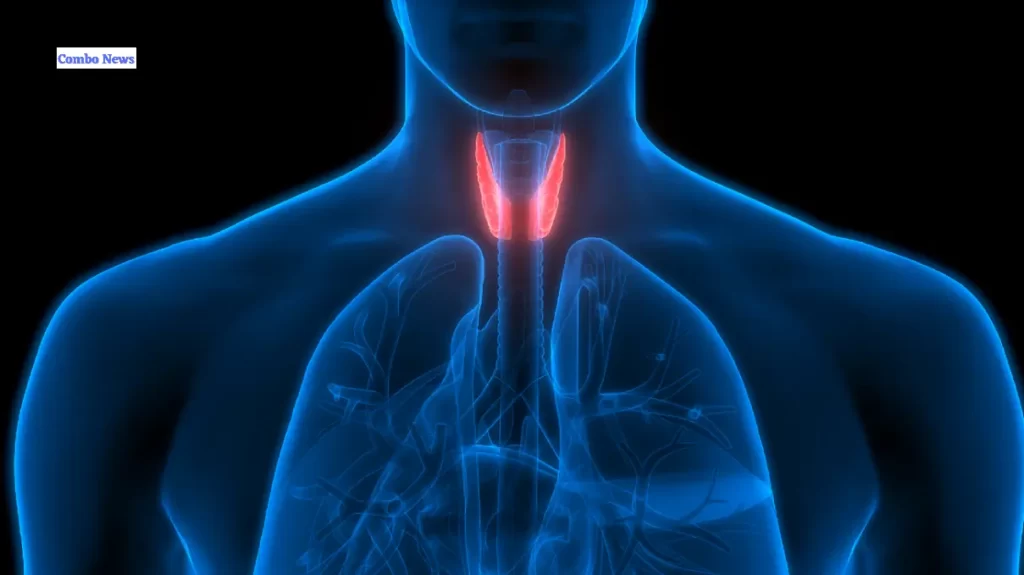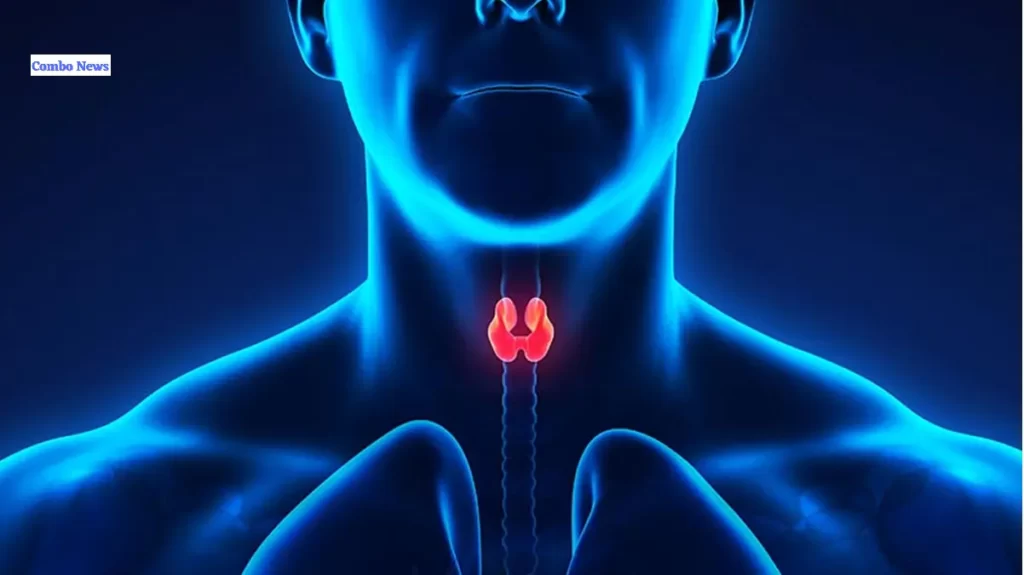Symptoms of thyroid condition Problem: which can go undiagnosed for years

Table of Contents
Unveiling the Mystery: Recognizing the Symptoms of Thyroid Disorders
In the intricate tapestry of the human body, the thyroid gland plays a pivotal role in maintaining balance and harmony. Nestled in the front of the neck, this butterfly-shaped gland produces hormones that regulate metabolism, energy levels, and vital bodily functions. However, when the thyroid falters, it can unleash a cascade of symptoms that can disrupt daily life. Understanding these symptoms is crucial for timely diagnosis and effective management.
In this article, we will delve into the intricate web of thyroid disorders and explore the key signs that may indicate an imbalance. Read on about the symptoms of thyroid.

Symptoms of Thyroid
1. Fatigue and Lethargy:
A persistent sense of fatigue, despite ample rest, can be an early indicator of thyroid dysfunction. The thyroid hormones influence energy levels, and a drop in their production can lead to feelings of sluggishness and lethargy. If you find yourself grappling with unexplained tiredness, it might be time to consider a thyroid checkup.
Also Read | Diabetes Prevention Tips and Its Link with Heart Attack
2. Unexplained Weight Changes:
The thyroid has a profound impact on metabolism. Consequently, changes in weight—either unexpected weight gain or unexplained weight loss—can signal an underlying thyroid issue. Individuals experiencing sudden shifts in their weight, even with no apparent changes in diet or exercise, should be attuned to this potential red flag.
3. Mood Swings and Emotional Disturbances:
Thyroid hormones exert influence on mood regulation. Therefore, disruptions in thyroid function can contribute to mood swings, anxiety, and even depression. If you notice uncharacteristic changes in your emotional well-being, it may be worthwhile to investigate the thyroid as a potential factor.
4. Hair and Skin Changes:
The health of your hair and skin can be reflective of your thyroid’s well-being. Dry, brittle hair and skin, as well as unexpected hair loss, could be signs of an underlying thyroid disorder. Monitoring these external cues can provide valuable insights into your overall thyroid health.
5. Temperature Sensitivity:
An often-overlooked symptom of thyroid disorders is sensitivity to temperature. Individuals with an underactive thyroid (hypothyroidism) may find themselves intolerant to cold, while those with an overactive thyroid (hyperthyroidism) may experience heightened sensitivity to heat. Paying attention to how your body responds to temperature changes can offer clues about your thyroid’s functioning.
6. Irregular Menstrual Cycles:
Symptoms of thyroid-For women, disruptions in the menstrual cycle can be indicative of thyroid issues. Irregular periods, unusually heavy or light flow, and fertility challenges may be linked to an imbalance in thyroid hormones. Recognizing these patterns can prompt proactive health measures and consultations with healthcare professionals.
7. Muscle and Joint Pain:
Thyroid dysfunction can manifest in physical discomfort, including muscle and joint pain. Individuals experiencing unexplained aches, stiffness, or muscle weakness should consider thyroid health as a potential contributing factor. Addressing the root cause can pave the way for targeted relief.
8. Swelling in the Neck (Goiter):
A visible swelling or enlargement of the thyroid gland, known as a goiter, is a clear sign of thyroid dysfunction. While goiters can be painless, they are a visible manifestation of an underlying issue. If you notice any unusual swelling in your neck, seeking medical attention promptly is crucial for a thorough evaluation.
Also Read | Understanding Panic Attacks: Causes, Triggers, and Ways to Overcome Them
Symptoms of Thyroid: Common Thyroid Disorders

Hypothyroidism
Hypothyroidism, or an underactive thyroid, occurs when the thyroid gland fails to produce sufficient hormones. This condition can lead to fatigue, weight gain, and a sluggish metabolism. Causes include autoimmune disorders, iodine deficiency, and certain medications.
Hyperthyroidism
Conversely, hyperthyroidism results from an overactive thyroid, leading to an excess of thyroid hormones. Symptoms include weight loss, rapid heartbeat, and irritability. Graves’ disease, an autoimmune disorder, is a common cause of hyperthyroidism.
Thyroid Nodules
Thyroid nodules are lumps that form within the thyroid gland. While often benign, they can sometimes be cancerous. Regular monitoring and, in some cases, biopsy are crucial for diagnosing and managing thyroid nodules.
Symptoms of Thyroid: Thyroid Health and Lifestyle Factors
Nutrition and Thyroid Health
Symptoms of thyroid-Iodine is a key component of thyroid hormones, making proper nutrition essential for thyroid health. A balanced diet that includes iodine-rich foods, such as seaweed and dairy products, supports optimal thyroid function. Additionally, selenium and zinc are vital minerals that contribute to thyroid health.
Stress and its Impact on the Thyroid
Symptoms of thyroid-Chronic stress can disrupt the delicate balance of the HPT axis, leading to thyroid dysfunction. Stress management techniques, such as meditation and exercise, can play a crucial role in maintaining thyroid health.
Environmental Factors
Symptoms of thyroid-Environmental toxins, such as pollutants and endocrine-disrupting chemicals, can adversely affect thyroid function. Awareness and minimizing exposure to such factors are essential for overall thyroid health.
Diagnosing and Treating Thyroid Disorders
Diagnostic Tests
Accurate diagnosis of thyroid disorders involves a combination of blood tests measuring TSH, T3, and T4 levels, as well as imaging studies like ultrasound. These tests provide a comprehensive picture of thyroid function and help identify underlying issues.
Treatment Options
Treatment for thyroid disorders depends on the specific condition. Hypothyroidism is often managed with synthetic thyroid hormones, while hyperthyroidism may require medications, radioactive iodine therapy, or in some cases, surgery. Thyroid nodules may necessitate monitoring or surgical removal.
Also Read | Unlocking the Secrets of Doctors: Effective Strategies to Maintain Blood Pressure
Symptoms Of Thyroid – Conclusion
Symptoms of thyroid-In the intricate dance of bodily functions, the thyroid gland holds a prominent role. Recognizing the symptoms of thyroid disorders is pivotal for early detection and effective management. From subtle shifts in mood to visible changes in the body, the thyroid communicates its distress through a myriad of signals. By staying attuned to these signs, individuals can embark on a journey of proactive health management, ensuring the thyroid’s pivotal role in well-being remains in harmony.
Remember, your body is a remarkable symphony, and every note matters—especially when it comes to the thyroid’s vital tune.
Symptoms of Thyroid – Key Facts
1. Fatigue: Feeling excessively tired or lacking energy is a common symptom of thyroid issues.
2. Weight Changes: Both unexplained weight gain and weight loss can signal thyroid dysfunction.
3. Mood Swings: Thyroid imbalances may contribute to mood fluctuations, including anxiety and depression.
4. Hair Loss: Thinning hair or significant hair loss can be associated with thyroid disorders.
5. Temperature Sensitivity: Feeling unusually sensitive to hot or cold temperatures may indicate thyroid issues.
6. Changes in Heart Rate: An abnormal increase or decrease in heart rate could be a thyroid symptom.
7. Muscle Weakness: Weakness and aching in the muscles, known as myalgia, may be linked to thyroid problems.
8. Skin and Nail Changes: Dry skin, brittle nails, and changes in skin texture can be signs of thyroid dysfunction.
FAQs
Can you have thyroid problems for years and not know it?
You might not experience the symptoms of an underactive thyroid for years since they frequently resemble those of other illnesses and typically manifest gradually.
At what age do thyroid problems start?
Anyone can have an overactive thyroid, although women are commonly affected between the ages of 20 and 40 and are affected around 10 times more frequently than males.
Also Read: High-Functioning Anxiety: Is It a Real Thing? Here’s What the Experts Say








